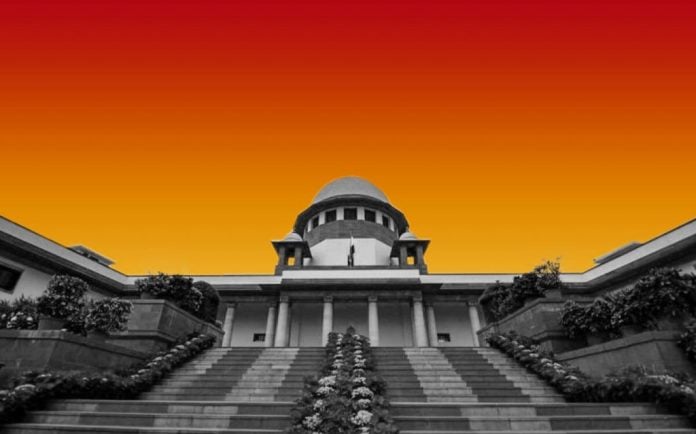The Supreme Court has acquitted four people, who were convicted in a 1989 murder case, after noting that the evidence against them was unreliable and the entire prosecution case could have been fabricated by the Police.
The Bench of Justice B.R. Gavai, Justice Vikram Nath and Justice Sanjay Karol expressed apprehension on March 28 that police might have accidentally killed the deceased while trying to arrest him and in order to cover up the same, fabricated a case against the accused after coming to know about the prior enmity between the deceased and the accused.
Noting that neither the scribe of the FIR has not been produced nor the signatures have been proved, the Bench expressed possibility of this being a complete ‘set-up’ by the police.
It said the police could have committed the murder in the process of arresting the deceased, and knowing the enmity between the two parties, set up a false case against the accused.
This also explained the presence of police personnel from Chabua Police Station throughout the incident, including at the spot during the time when the murder was said to have occurred, noted the Apex Court.
The Bench passed the order on a petition filed by the accused, challenging their conviction and life sentence by the Gauhati High Court in 2015.
Both the trial court and the High Court had convicted 11 accused under Sections 147 (rioting), 148 (rioting armed with deadly weapons), 447 (criminal trespass), 323 (hurt), 302 (murder), 149 (unlawful assembly) of the Indian Penal Code, 1860 in the death case of one Pradip Phukan, who was murdered on June 13, 1989.
However, only four of the convicts preferred appeal before the apex court.
The top court of the country noted that the informant and the three eye-witness had categorically stated that police personnel had accompanied the accused-appellants to the house of the deceased and they were present throughout the incident, including when the murder took place.
However, the trial court failed to get this clarification from the prosecution as to why the police personnel accompanied the accused-appellants and stood outside the house of the deceased to watch the accused assault the deceased and commit his murder.
If the police personnel were present at the time of commission of the offence, they should have immediately acted upon to set the criminal machinery in motion by first apprehending the accused from the spot itself, rather than allowing them to get away, added the bench.
It also did not find any reliable evidence with regard to the presence of the brother of the deceased at the place of the incident, though he claimed to have witnessed the incident.
(Case title: Pulen Phukan and Others vs State of Assam)


